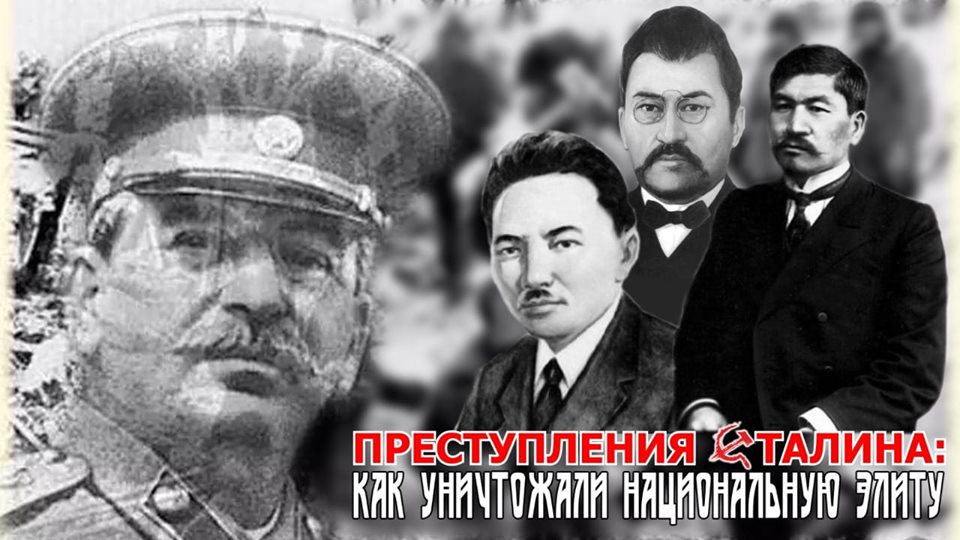On September 25, Zhanbolat Mamay’s new documentary film, Stalin’s Crimes: How National Elite Was Purged, premiered on Polyton YouTube channel. The film reveals mass political repressions of 1920s and 1930s in Kazakhstan.

Initially, the premiere was planned to be held at Caesar cinema in Almaty, but according to the film director, shortly before the event date the theater management cancelled the screening.
On his Facebook page, journalist and documentary maker Zhanbolat Mamay, wrote:
“We are convinced that the theater management cancelled the screening following an order “from above”.
We have considered other options: hotels, conference halls, etc. However, that would be inconvenient for the audience as these venues are not equipped for film screenings. Besides, it is obvious that eventually the premiere would be cancelled by the management of those venues too, which would be a waste of our time and energy. Therefore, we decided to present our film at a free and independent platform: YouTube. Now, in order to see the film, there is no need to go anywhere”
The film is available in Russian and Kazakh on Polyton YouTube channel.

Photo from his personal Facebook page
In a conversation with Adamdar/CA, Zhanbolat Mamay shared his thoughts on why the issues addressed in his new documentary are not just important in terms of historical memory but are also timely for modern Kazakhstan:
“Within a single decade of 20th century, Kazakh nation lost over 4 million people. One million died from the mass famine of 1921-1922. We lost 2.2 million people (and that is just an official number) to the Kazakh Zulmat* in 1931-1933. Over a million Kazakhs were forced to flee to other countries. As a result of the Bolshevist policy, we had lost nearly a population of a small European state. During 1920s and 1930s, virtually all dignitaries of the Kazakh nation were killed. Not only members of Alash but also famous writers, poets, creative class representatives, and scientists were liquidated. The nation was beheaded.
That was a genocide of the Kazakh nation, the genocide organized by the Stalinist-Bolshevist executioners, cruelest criminals of 20th century. However, unfortunately, the issue is underreported in the country. Motivated by the fear of the Kremlin, the government does not want to make any historical or political evaluation of the crimes by the Communist regime. Today, Putin’s regime is trying to rehabilitate the Bolshevists and Stalin by showing him as the savior of the motherland.
In reality, Stalin was a villain, a violent executioner comparable with Pol Pot, and the Communist regime was comprised of executioners and occupiers. We deserve to know the true story and to judge the actions of the occupiers. And this is exactly what Stalin’s Crimes: How National Elite Was Purged is about.”
Background information:
Earlier, in January 2019, Zhanbolat Mamay’s another documentary, Zulmat. The Genocide in Kazakhstan, premiered at Arman cinema in Almaty. The film is now also available on YouTube. The film addresses the topic of the Bolshevists’ repressive politics and the orchestrated famine(Asharshylyk, Uly Jut, Holodomor, Goloschyokin's famine)* during the Stalin’s period in Kazakhstan. A number of Kazakhstani and foreign researchers and public figures claim that Ashsrshylyk in Kazakhstan should be recognized as genocide.
* The famine of 1931−1933 (Asharshylyk, Uly Jut, Zulmat, Holodomor, Goloschyokin's famine) is one of the major yet under-reported tragedies in the modern history. As a result of policy of collectivization, seizure of the major sources of livelihood and repressions against peasants, nomadic cattle herders and the “kulaks” led by Bolsheviks under the command of Joseph Stalin, a number of regions of the USSR had been spanned by massive famine. The greatest level of casualties was in Kazakhstan and Ukraine, the famine was also spread in some areas in the republics of Central Asia, Siberia, Ural, Caucasus and the Volga region.